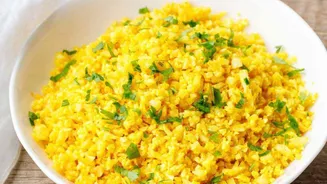Dive into the heart of Indian hospitality through its culinary traditions. Explore how food embodies respect, love, and community values in a land where guests are revered as gods. From elaborate festive
feasts to humble home-cooked meals, discover how each bite narrates a tale of warmth and generosity. Unravel the significance of the Indian thali, festive feasts, and langar as symbols
India, a land famed for its vibrant culture and ancient traditions, has a unique way of greeting its guests – through food. Food isn't just about sustenance; it’s an expression of respect, love, and a deep-rooted belief in "Atithi Devo Bhava" - the guest is equivalent to God.
From the snow-capped Himalayas to the sun-kissed beaches of the South, every region boasts a distinct culinary identity. But the underlying principle remains the same: sharing a meal is the cornerstone of Indian hospitality.
Whether it’s a simple home-cooked meal or an elaborate festive spread, the generosity and warmth conveyed through food are unparalleled. This tradition is not merely a matter of etiquette; it's woven into the very fabric of Indian society, reflecting its values of community, sharing, and reverence.
Offering food as a gesture of goodwill and connection between host and guest
The act of offering food transcends mere physical nourishment; it’s a symbolic gesture of goodwill and a way of forging connections. When a guest arrives, one of the first things offered is a glass of water or a refreshing beverage.
This simple act of hospitality signifies welcome and signals the beginning of a relationship. Traditionally, the host ensures that the guest is comfortable and well-fed before attending to their own needs. This selfless approach underscores the importance placed on guest satisfaction.
The variety of dishes offered often reflects the host's desire to cater to the guest's preferences, showcasing a personal touch that elevates the dining experience. Even in modest homes, the effort to provide the best possible meal is a testament to this deeply ingrained cultural value.
The intention is not just to fill the stomach, but to fill the heart with warmth and goodwill, leaving a lasting impression of genuine care and consideration.
Indian thali symbolizes rich hospitality through diverse flavors
Consider the Indian thali, a platter that presents a kaleidoscope of flavors and textures. This culinary masterpiece is a microcosm of Indian hospitality, reflecting the diverse regional cuisines and the host's desire to offer a complete and balanced meal.
The thali typically includes a variety of vegetarian dishes, such as lentils, vegetables, yogurt, and bread, each carefully chosen to complement the others. The arrangement of the dishes on the thali is also significant, often reflecting a hierarchical order or a balance of flavors.
The thali isn't just a meal; it's an experience, a journey through the diverse landscapes of Indian cuisine. It’s a symbol of abundance and generosity, showcasing the host's desire to provide the guest with a rich and satisfying culinary experience.
The homemade ghee, freshly prepared sweets, and hand-ground spices – are all elements that contribute to the unique and personal touch of the Indian thali – making it synonymous with heartfelt hospitality.
Festive feasts in India symbolize community spirit and togetherness
Festivals in India are incomplete without the lavish feasts prepared for family, friends, and even strangers. During Diwali, the festival of lights, sweets like ladoos and barfis are prepared in abundance and shared with everyone.
Similarly, during Holi, the festival of colors, special dishes like gujiya and thandai are served, symbolizing togetherness and joy. These festive meals are not just about the food; they are about the spirit of community and sharing.
The preparation of these meals often involves the entire family, reinforcing bonds and creating lasting memories. From elaborate pujas to simple family gatherings, food plays a central role in celebrating these occasions.
The abundance of food symbolizes prosperity and good fortune, while the act of sharing it reinforces the values of generosity and compassion. These festive feasts are a testament to the importance of food in strengthening social connections and celebrating the richness of Indian culture.
Langar in Sikh temples embodies equality and community through free meals
The tradition of langar, a community kitchen in Sikh temples (Gurdwaras), is another shining example of Indian hospitality. Langar offers free meals to all, regardless of their caste, creed, or religion. This practice embodies the principles of equality, selfless service, and sharing.
The food served in langar is simple but nutritious, usually consisting of roti, dal, and a vegetable dish. The preparation and serving of the food are done by volunteers, who dedicate their time and effort to this noble cause.
Langar not only provides sustenance to those in need but also fosters a sense of community and belonging. It's a powerful symbol of inclusivity and compassion, reflecting the core values of Indian society.
The act of sitting together and sharing a meal, regardless of background, promotes equality and breaks down social barriers. Langar is a testament to the power of food to unite people and create a more just and equitable society.
Indian hospitality emphasizes food as a universal language of love and connection
In a world that is becoming increasingly individualistic and impersonal, the Indian approach to hospitality offers a refreshing reminder of the importance of human connection.
By sharing food with our guests, we not only provide them with nourishment but also create a space for communication, understanding, and friendship. The tradition of offering food is a way of expressing our gratitude, respect, and love.
It's a way of saying, "You are welcome, you are valued, and you are part of our family." This simple act of kindness can have a profound impact, leaving a lasting impression on our guests and strengthening the bonds of our community.
In essence, food is more than just sustenance in India; it's a universal language of love and hospitality. It is a powerful tool for building relationships and fostering a more compassionate and connected world.
The way you present food to your guests matters a lot and food gives the culture, a unique identification.
AI Generated Content. Glance/InMobi shall have no liability for the content










